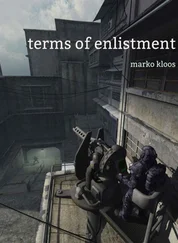Do you have any downtime coming up? I’m coming back to Gateway for some enforced leave. I can come over to Luna for a visit if you want.
I send the message off to Halley and head back to my berth for some sleep.
———
When I wake up at the next watch change, I check the time on my PDP to find a new message on the screen.
>I have a full roster during the day, but I’m free in the evenings, and I get Sundays off. Hope you didn’t get any essential equipment damaged on that last mission of yours. Send me a message when you get to Gateway, and I’ll pick up my berth a bit and tell the CQ to expect you.—H.
I close the message and turn off my PDP with a smile.
Here we are, on the losing end of an interstellar war, with our world slowly falling apart around us, and I’m excited about going to see my girlfriend for a day or two. We may have gone from oar-powered galleys to half-kilometer starships in the span of two thousand years, but some things about humanity seem to be a universal constant, no matter the era.
It’s almost impossible for soldiers to have contact with anyone on Earth because the military’s network doesn’t talk to the civilian world for security reasons. They do let us send messages to direct relatives, though. My mother has a mailbox on the system as a “Privileged Dependent/Relative,” and she gets an hour or two of heavily restricted MilNet access per month. I know she treks down to the civil center every third Sunday of the month to collect her mail. Especially since during my first year of service, after Halley and I almost got killed on Willoughby when the Lankies made their first appearance, I started sending messages to my mother after a long dry spell of no communication.
At first I didn’t have all that much to say to her, so I used the mail system as a journal of sorts. After a while, she started sending entries of her own, telling me what was happening in her world. Mom is actually a good writer—she’s thoughtful and perceptive, and her updates let me see life in our old PRC in a whole new light. It’s a shame that I had to go into space and light years away from home to find out that my mother actually has opinions worth reading.
I compose a message on my PDP and tell my mother that I have leave coming up, and that I finally want to stop by for a visit Earthside. When I send the message out to Mom’s mailbox, I have the sudden urge to look for some sort of souvenir, something to bring back home for my mother as evidence of my activities, but when I look around in my berth, I realize that I don’t own a single thing that wasn’t issued to me by the military. Five years of sweating, fighting, and bleeding, with billions of kilometers traveled and over a hundred colony planets visited, and the only thing I have to show for it is a collection of colorful ribbons on my Class A smock and an abstract number in a bank account somewhere in a government computer. If I die in battle next month, there will be no evidence that I ever existed.
On the plus side, when everything you own can fit into a small locker, packing for a move is easy.
CHAPTER 5
GOING DOWN TO EARTH
I have two bags for clothing and equipment in my issued inventory. The larger one is a huge duffel bag with sewn-in polymer stiffeners. It’s big enough to hold most of the contents of my shipboard locker. The duffel is mostly used to haul gear around between duty stations. Mine is worn and frayed after five years of skipping from post to post, ship to ship. The smaller one is called the furlough bag, and it’s just big enough to hold enough clothes and a personal kit for a few days. The furlough bag is mostly used for going on leave, and mine is virtually pristine.
Since our trip back home takes a week, I have plenty of time to square away my gear and say my good-byes to my friends on the ship. By the time the Intrepid engages the docking collar at Gateway, I am ready to step off the ship and move on. I leave my heavy duffel on my rack for transfer pickup, and take my furlough bag to start my two weeks of leave. Against all my pessimistic expectations, CIC does not announce combat stations, and nobody whistles me back when I step past the security detachment at the main docking hatch to leave the ship for good. As I walk out into the hallway of Gateway Station beyond, I pat the last bulkhead frame of the ship in passing.
Farewell, NACS Intrepid CV-1941. May you die of old age in the decommissioning docks thirty years from now.
Gateway Station is the main hub for all military traffic from and to Earth and Luna. It’s an orbital base and spaceport rolled into one huge, hulking structure, perpetually suspended in high orbit. There’s a constant stream of people and material passing through this station, and it has been in need of an overhaul since well before I even joined the service.
It’s a long hike from the outer ring where the carriers dock to the main concourse where I can claim a seat on a Luna-bound personnel shuttle. I walk through the familiar narrow corridors toward the central part of the station, swimming with the crowds of people going in the same direction. Whenever a carrier docks, hundreds of people end up clogging the same narrow intersections on Gateway at the same time, and it takes forever to get anywhere.
The main concourse is as crowded as I’ve ever seen it. There are fleet crews and Spaceborne Infantry troopers everywhere, most of them in the Class A smocks that are required wear for transfers to a new duty station. I take a quick visual survey and notice that most of them are junior enlisted personnel, likely fresh out of Basic and heading for Fleet School or SI’s Infantry School. Many of them are wearing the same unsure expression I undoubtedly had on my face when I stepped off the shuttle and onto Gateway for the first time. As I pass through the crowd, I notice some of the new privates glancing at the modest collection of ribbons and badges on my Fleet Arm Class A smock and the scarlet beret on my head.
I elbow my way to the main row of Transportation Coordinator booths on the main concourse, where I stand in line behind half a platoon of SI troopers. When my turn comes, I step up to the booth and hand over my military ID for the desk specialist to scan.
“Where to, Sergeant?” the specialist asks, his gaze flicking from the screen of his terminal to the scarlet beret I have now stuffed underneath the left shoulder board of my uniform. The color is an ancient privilege—combat controllers are one of the few occupational specialties allowed a beret color other than the standard Homeworld Defense green, Fleet Arm black, or Spaceborne Infantry maroon. It’s a hard-earned badge of office, but it does tend to make one stick out in a crowd.
“I need to hop up to Luna for a few days,” I say. “Visiting an old friend in Fleet School.”
“Shuttles to Luna are fleet priority until Saturday,” the specialist says, not the least bit apologetic. “You want to go up there before then, you need to have valid orders for Luna.”
“Well, crap. That’s five days from now. Don’t make me waste half my leave in the TPU.”
“Sorry, Sarge. You can see that the place is popping at the rivets right now. All three recruit depots just let out a new batch of trainees this morning, and we’re hauling them up to Luna as fast as we can. Come back Saturday and I’ll get you on a shuttle, but right now every seat is fleet priority.”
“Can you get me down Earthside at least?”
“Down to Earth? Sure. I have twenty empty shuttles going back every hour to haul up new people. Where do you want to go?”
“Closest spaceport to Greater Boston, I guess.”
“That would be Cape Cod HDAS. Hang on, let me check what’s going down that way.”
Читать дальше












